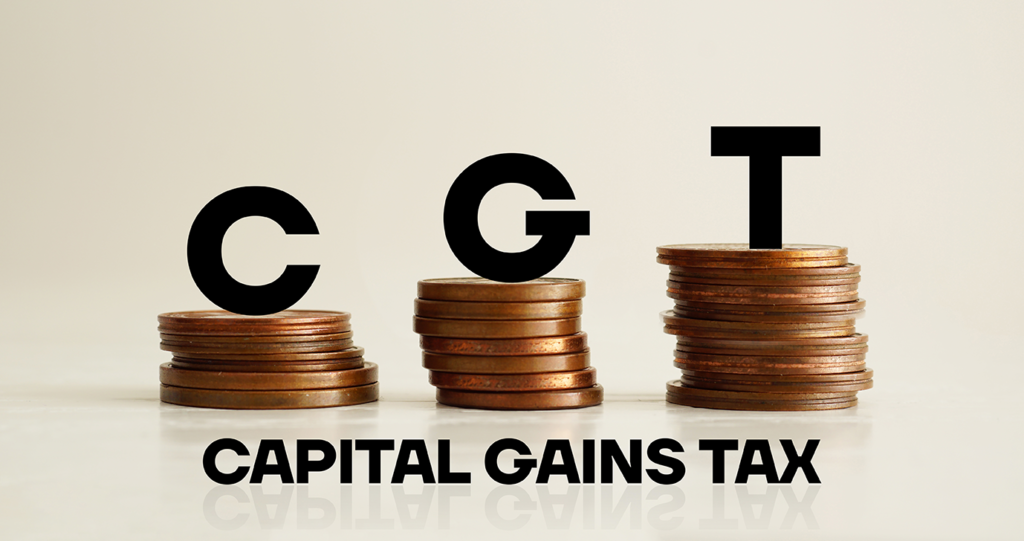The Impact of Potential CGT Increases for Landlords

Recent reports indicate potential hikes in Capital Gains Tax (CGT), which could significantly hit UK landlords. The Labour Party has suggested raising CGT rates to align with income tax rates, which could mean a jump from 18%-24% to as high as 40% for higher earners. For landlords, this change could severely erode their profits, especially when considering inflation.
Understanding the CGT Impact
For a typical landlord, selling a property they’ve held for 11 years might yield around £103,640 in gross gains. However, after factoring in inflation over the past decade, estimated at 40%, the real world value of that gain shrinks to £62,425. With current CGT rates, a higher-rate taxpayer would face a tax bill of £24,153, reducing their net gain to £38,272. If CGT rates were increased to 40%, that tax bill would rise to £41,456, meaning the final profit could be reduced to only £20,969.
These rising tax rates are especially concerning for landlords who bought property as a long-term investment or for retirement. Property values have increased, but inflation and potential tax hikes mean many may not see the expected returns on their investments.
The Role of Inflation in Property Investment
For landlords, inflation impacts the purchasing power of their gains. Property values often appreciate over time, yet high inflation can offset these increases. In real terms, the gains are less substantial than they appear on paper. As inflation persists, landlords who purchased properties in the last five years and are now considering selling may even see little to no real gain – just as their profits are set to be taxed at higher rates.
Plan Insurance can accommodate your Property Owners & Landlord Insurance needs. Just fill in our short call back form, and our professional brokers will be in contact to arrange your insurance.
Capital Gains Tax on Retirement Plans
Many landlords rely on property investments as a retirement strategy. According to the English Private Landlord Survey, over half of landlords consider property a significant part of their pension plan. However, increasing CGT rates could force some to hold onto properties longer than planned as they seek to avoid a substantial tax burden that might undermine their retirement funds. If CGT rates do rise, landlords may need to reassess whether property remains a viable part of their long-term financial strategy.
Strategies for Reducing Capital Gains Tax
Landlords can take several steps to mitigate the impact of CGT:
Deductible Expenses: Costs associated with purchasing, selling, and improving the property, such as estate agent fees, legal expenses, and significant renovations, can be deducted from the total gains before tax.
Capital Improvements: While general repairs don’t qualify, capital improvements (like extensions or structural upgrades) can reduce the taxable gain.
Consider Timing: If a tax rise is imminent, landlords may want to accelerate their selling plans to avoid the increased CGT rate. Conversely, if they can hold the property longer, they may benefit from potential future tax policy changes.
When is Capital Gains Tax Due?
CGT payments are due in January following the tax year in which the sale occurred. For residential property, though, the timeline is tighter; landlords must pay CGT within 60 days of selling. You can visit the UK government website to calculate Capital Gains Tax. More details on due dates and filing requirements are available here.
Preparing for Future Tax Changes
As the UK government explores adjustments to Capital Gains Tax, landlords face potential challenges when planning property sales. While property has long been considered a valuable retirement investment, increased tax rates could alter the landscape. If you’re a landlord, now is an excellent time to evaluate your financial goals and consider the implications of potential tax changes. As always, staying informed and consulting with a financial adviser is recommended and may help you make the best decision, whether you’re looking to hold, sell, or re-imagine your property investment strategy.
Find out why 96% of our customers have rated us 4 stars or higher, by reading our reviews on Feefo.







